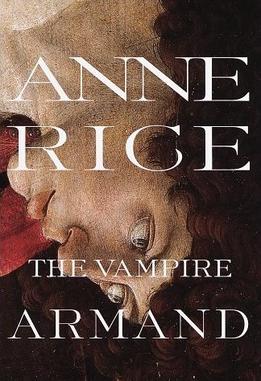Please note: This review contains discussion of pedophilia.
David Talbot is doing something he never thought he would do: making contact with Merrick Mayfair, the beautiful witch who came to the Talamasca as a child. Now a vampire, David is afraid of the temptation of turning her as well, but he has been asked by Louis de Pointe du Lac to approach Merrick and ask if she will summon Claudia, the child vampire killed so long ago. Merrick is up to the task, but first, David recounts the tale of Merrick's life to Louis, in the hopes that he will understand just how precious she is, and how important it is not to ruin her life with their vampirism. All three of them are drawn together by memories of the past, hopeful for answers and fearful of what remembrance might bring.
Merrick is not very popular amongst the Vampire Chronicles fandom. Regardless, I was eager to give this a try, interested particularly in the character of Merrick Mayfair, who is a biracial witch related to the white Mayfairs who have their own book series. Unfortunately, though, as I got closer and closer to the end, I realized why this book remains so infamously disliked amongst fellow fans, and why I see so little discussion of it entirely. The deadliest crime here is that, simply put, Merrick is largely boring. As always, there are moments of truly beautiful writing, particularly when it comes to the sections that take place in the Guatemalan jungle, but as a whole, it suffers from a strange lack of magic when compared to the rest of the books in the series.
Although Merrick is an interesting character, she suffers from the same problem that challenges most of Rice's female characters: compared to their male counterparts, they are often underdeveloped, feeling like little more than springboards meant for the male cast to use in their own journeys. There are a few exceptions, of course; namely, Gabrielle, who commands each page she is on with little effort. But as a whole, it just feels as if Rice isn't as interested in female characters as she is in the male ones. Merrick acts as a sort of test of David's character, both when he is a mortal man and as a vampire. In fact, I want to discuss this in more detail.
Once again, as we see with Marius, David is an unrepentant creep. There's no other way to put it. He is canonically a pedophile; several other characters make mention of it in this book, and David essentially just states it as a fact. Though he usually likes boys (gag), he is obsessed and captivated by Merrick, whom he meets as a girl of fourteen, if I'm remembering correctly. He often says she is not a child, which is baffling. How is this little girl not a child? This plays into the weird racism that surrounds Merrick throughout the book. Not only is she called exotic again and again, but she's also cast as a "temptress," seductive even in her adolescence. Many young black girls are seen as more "mature" and are sexualized in ways that white girls are not. It's gross, and it leaves you feeling icky, like you need a bath.
So, as you can imagine, it's pretty much impossible to like David. Louis, who I adore, is actually in this book very fleetingly. The relationship between Merrick and Louis is not particularly interesting, and though I am first and foremost a lover of Louis and Lestat together, I don't usually mind when they take on other lovers, as this is just part of vampiric nature -- nearly all of them are polyamorous in some form or another. But, Merrick and Louis just feel... boring. He forgives her for something quite awful, too, and all of it was just strange. And not in a good way.
With all of this being said, I'm sure you can tell that I was not a fan. Not recommended; honestly, if you're a fan of the books, I think you could skip this one without missing much. The scenes with Claudia also feel like an afterthought, so if that's your main motivation for reading this, I'd still skip it.





